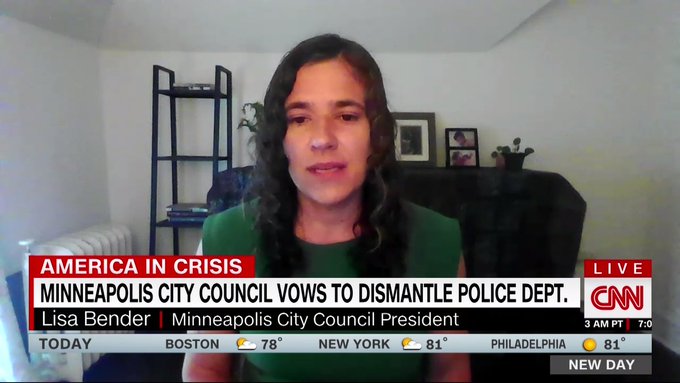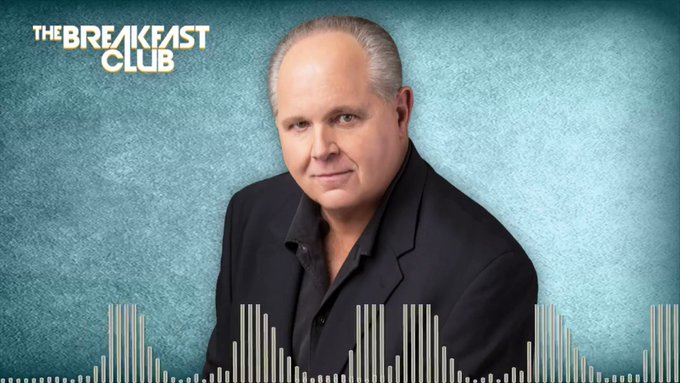Minneapolis City Councilwoman: Expecting Police Protection Is a 'Privilege'
As racial tensions continued to flare across the nation, Minneapolis City Council President Lisa Bender doubled down Monday on recent calls to “dismantle” the local police department.
A member of Minnesota’s progressive Democratic-Farmer-Labor Party, Bender dismissed public fear regarding a police-free city in a television spot on CNN’s “New Day” with Alisyn Camerota, adding that societal expectations of police protection come from a place of “privilege.”
“Do you understand that the word ‘dismantle’ or ‘police-free’ also makes some people nervous, for instance?” Camerota asked. “What if, in the middle of the night, my home is broken into? Who do I call?”
Bender, however, would not answer the question directly, instead addressing what she considers to be the dangers faced by people of color when police respond to calls for service.
The councilwoman would also go on to discuss potential alternatives to law enforcement.
“I mean, I hear that loud and clear from a lot of my neighbors — and myself, too — and I know that that comes from a place of privilege,” Bender said.
“Because for those of us for whom the system is working, I think we need to step back and imagine what it would feel like to already live in that reality where calling the police may mean more harm is done.”
“We’ve done an analysis of all the reasons people call 911 and have looked up ways we can shift the response away from armed police officers into a more appropriate response for mental health calls, for some domestic violence calls, for health-related issues,” she added.
Minneapolis City Council President Lisa Bender on the intent to defund and dismantle the city’s police department: “[We] have looked up ways we can shift the response away from our armed police officers... the groundwork is laid already”cnn.it/2BNuYIt
568 people are talking about this
A strong proponent of radical justice reform, Bender joined Sunday with her colleagues on the Minneapolis City Council to pledge to disband the city’s police department and replace it with a wider array of responsive social programs, according to The New York Times.
Supported by a nine-vote majority, the proposal will be unstoppable — even by the veto pen of Mayor Jacob Frey, who has expressed support for any and all reforms short of police abolition.
Calls for such radical action, however, have been elevated into the mainstream of political discourse in recent weeks by left-wing activists following the well-publicized death of George Floyd.
Floyd, a 46-year-old black man, died May 25 after a Minneapolis police officer knelt on his neck for nearly nine minutes during an arrest over his alleged use of a counterfeit $20 bill.
Racial tensions were already coming to boil at the time, with the deaths of unarmed black citizens Breonna Taylor of Louisiana and Ahmaud Arbery of Georgia drawing widespread media and activist attention in the weeks leading up to Floyd’s death.
Bystander video of the incident, however, quickly went viral, a fire-starter for reopening nationwide conversations surrounding alleged police brutality and racism in the justice system. The weeks that followed would also see sizable Black Lives Matter protests around the nation, some of which made headlines as they devolved into riots and looting.
Described by the nonprofit Global Citizen as an “unearned benefit or advantage one receives in society by nature of their identity,” the term “privilege” has been a popular buzzword in the resulting discourse, cited by progressives as a leading cause of perceived societal apathy and inability to relate to events like the death of Floyd, or figures like Trayvon Martin and Philando Castile before him.
Conservatives like talk radio host Rush Limbaugh have long batted down use of the term, suggesting allusions to a vague and intangible social “privilege” only serve to abstract the racial and political problems facing the nation, making the hunt for tangible solutions impossible.
“I don’t buy into the notion of white privilege,” Limbaugh said last week on popular radio program “The Breakfast Club.”
Rush Limbaugh debating white privilege w/ @cthagod and @breakfastclubam today went about as you'd expect.
See Alex Thompson's other Tweets
Journalist Lara Logan was even less reserved on topic, however, suggesting the left’s blanket application of the term is downright offensive.
I remember when I was being gang-raped & beaten by a mob in Egypt, would have been great to have a police force to call then. Would that have been my white privilege talking? I’ve stood against racism all my life,don’t have a racist bone in my body. My heart breaks... twitter.com/eddiezipperer/…
14.1K people are talking about this
Attacking Bender in a tweet Tuesday, Logan recounted her alleged sexual assault at the hands of a gang in Egypt and said her desire for law enforcement protection at the time of her victimization came from anywhere but a place of privilege.
“I remember when I was being gang-raped & beaten by a mob in Egypt,” Logan said. “Would have been great to have a police force to call then.
“Would that have been my white privilege talking?” she asked.
The Western Journal has reached out to Bender for comment but has not yet received a response.
Minneapolis City Councilwoman: Expecting Police Protection Is a 'Privilege'
![Minneapolis City Councilwoman: Expecting Police Protection Is a 'Privilege']() Reviewed by Your Destination
on
June 10, 2020
Rating:
Reviewed by Your Destination
on
June 10, 2020
Rating:







No comments